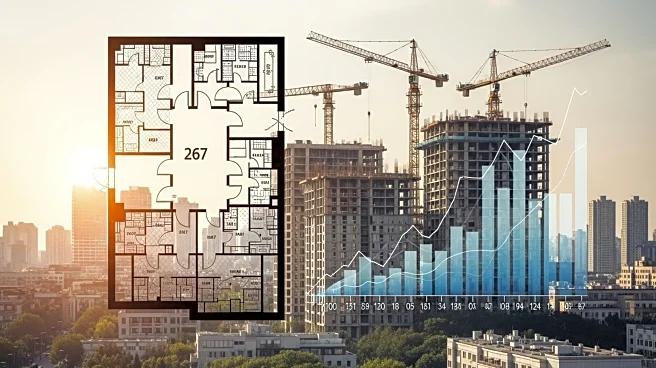What's Happening?
A New York-based company, Alpine Residential, is set to purchase the former Crowne Plaza hotel property in Cromwell, Connecticut, with plans to demolish the existing structure and construct 267 apartments. The site, once a popular venue for conventions and weddings, has been deteriorating since its closure in January 2020. Alpine Residential aims to redesign the original proposal by Lexington Partners, reducing the number of apartments and increasing the proportion of two-bedroom units. The redevelopment will include two five-story buildings, a courtyard with a pool, and reduced retail space. The project reflects changes in the market since Lexington's initial $100 million plan in 2022.
Why It's Important?
The redevelopment of the former hotel site into residential apartments is significant for the local housing market, offering a mix of affordable and market-rate units. This project addresses the demand for housing in Connecticut, particularly in Cromwell, and reflects broader trends in real estate development where mixed-use projects are increasingly favored. The reduction in retail space and elimination of townhomes indicate a shift in developer priorities, focusing more on residential needs. The project could stimulate local economic activity and provide new housing options, potentially attracting more residents to the area.
What's Next?
Alpine Residential plans to begin demolition in the first quarter of 2026, with construction expected to follow in the next season. The town council and planning commission will likely continue to oversee the project's progress, ensuring compliance with zoning regulations. The development may prompt reactions from local residents and businesses, who could benefit from increased foot traffic and economic opportunities. Additionally, the project's success could influence future real estate developments in the region, setting a precedent for similar initiatives.
Beyond the Headlines
The transformation of the former hotel site into residential apartments highlights the evolving landscape of real estate development, where adaptive reuse of properties is becoming more common. This approach not only revitalizes underutilized spaces but also addresses housing shortages. The project's focus on affordable housing units aligns with broader societal goals of increasing accessibility to housing. Moreover, the shift away from retail space reflects changing consumer behaviors and the growing importance of residential living spaces in urban planning.










